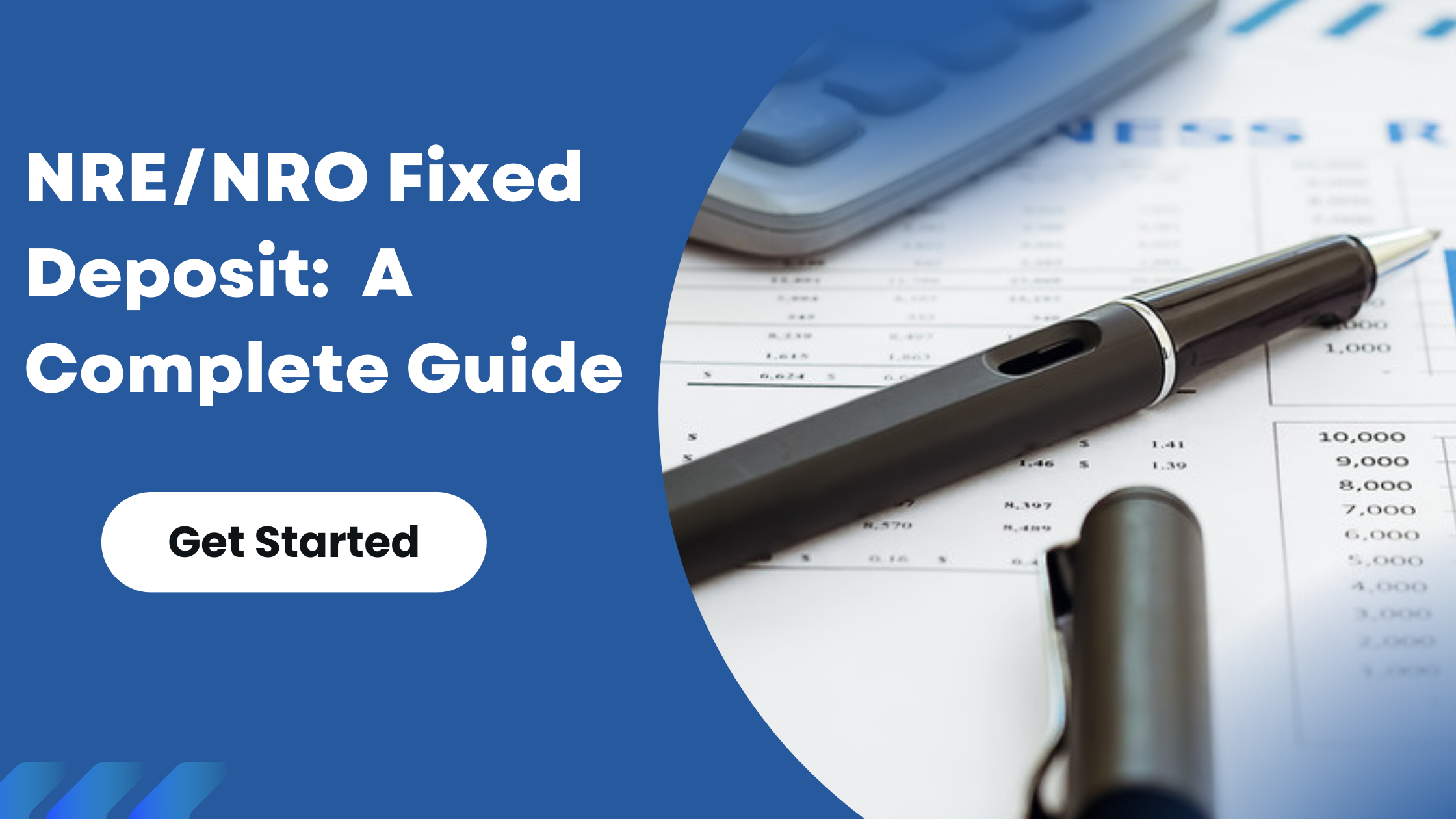Non-Resident Indians (NRIs) looking to park their savings in India often choose NRE (Non-Resident External) or NRO (Non-Resident Ordinary) Fixed Deposits. Both types of fixed deposits cater to NRIs but differ in terms of tax implications, repatriability, and the source of funds. Understanding these differences is crucial for NRIs to make an informed decision about their investment.
What is an NRE Fixed Deposit?
An NRE Fixed Deposit is a type of deposit where NRIs can park their foreign earnings in India. The funds deposited in this account are fully repatriable, meaning both the principal and interest can be transferred back to the NRI’s country of residence without any restrictions. NRE FDs are an excellent option for NRIs looking to invest their foreign income in India while enjoying tax-free returns.
Key Features of NRE Fixed Deposit:
- Source of Funds:
Only income earned abroad can be deposited into an NRE FD account. The funds must be converted into Indian Rupees before being invested. - Tax-Free Interest:
The interest earned on NRE FDs is completely exempt from Indian income tax, making it a tax-efficient investment option for NRIs. - Repatriability:
Both the principal amount and the interest earned in an NRE FD are fully repatriable, meaning they can be transferred back to the NRI’s foreign bank account without any limitations. - Currency Risk:
Since NRE FDs are maintained in Indian Rupees (INR), there is a risk of currency fluctuation, which may affect the value of the returns when converted back into foreign currency. - Tenure:
NRE FDs typically come with tenures ranging from 1 year to 10 years. The tenure is flexible, and you can choose a term that aligns with your financial goals. - Premature Withdrawal:
NRE FDs allow premature withdrawal, although a penalty may be applicable.
Advantages of NRE Fixed Deposit:
- Tax-Free Interest:
One of the biggest advantages of NRE FDs is that the interest earned is tax-free in India. This makes them highly attractive for NRIs seeking tax-efficient investments. - Full Repatriability:
NRE FDs offer the convenience of full repatriability, allowing NRIs to transfer both the principal and interest earned back to their country of residence. - Safe Investment:
NRE FDs offer guaranteed returns as the interest rate is fixed at the time of investment, providing security of capital and returns.
Disadvantages of NRE Fixed Deposit:
- Currency Risk:
Since NRE FDs are maintained in INR, there is always a risk of exchange rate fluctuations, which can impact the final returns when converted back into foreign currency. - Only Foreign Income Allowed:
You can only deposit foreign earnings into an NRE account, which limits its use for managing income earned in India.
What is an NRO Fixed Deposit?
An NRO Fixed Deposit is meant for NRIs to deposit income earned in India, such as rent, pension, dividends, or any other income generated in India. Unlike NRE accounts, NRO FDs come with tax liabilities, and the repatriability of funds is restricted.
Key Features of NRO Fixed Deposit:
- Source of Funds:
The funds deposited in an NRO FD account must originate from income earned in India, such as rental income, dividends, or other Indian sources. - Taxable Interest:
The interest earned on an NRO FD is subject to Indian income tax. TDS (Tax Deducted at Source) is applicable at the rate of 30% on the interest earned. - Limited Repatriability:
While the interest earned on an NRO FD is repatriable, the principal amount can only be repatriated up to USD 1 million per financial year after paying the applicable taxes. - Tenure:
NRO FDs offer tenures ranging from a few months to several years, similar to NRE FDs. - Premature Withdrawal:
Like NRE FDs, NRO FDs also allow premature withdrawal, although penalties may apply.
Advantages of NRO Fixed Deposit:
- Investment of Indian Earnings:
NRO FDs provide NRIs with a way to invest their Indian earnings, making them a good option for managing
A network error occurred.










